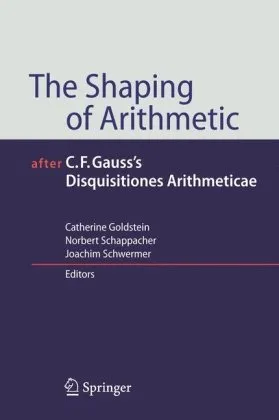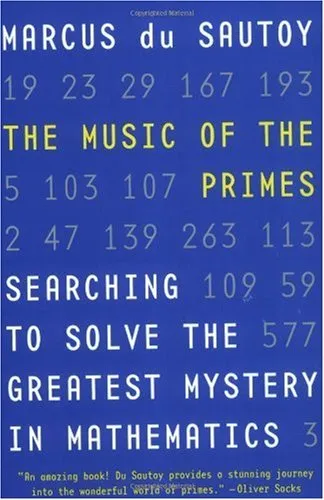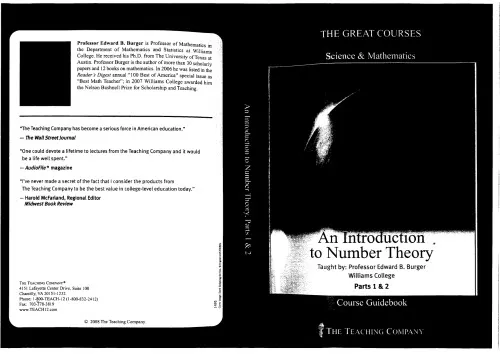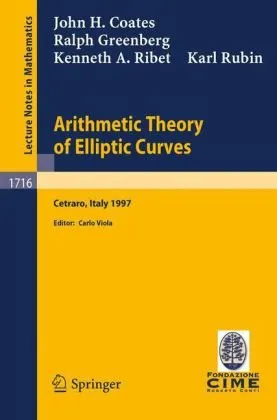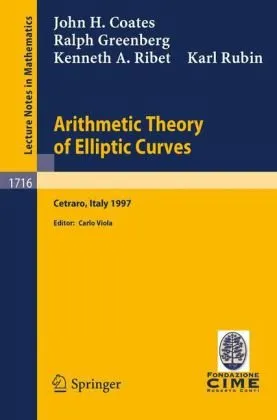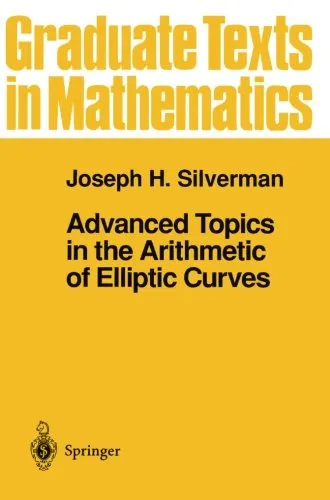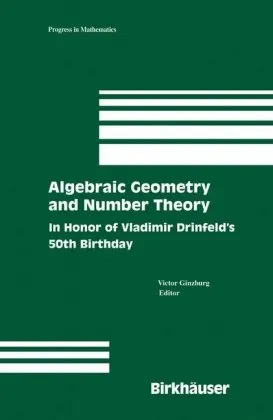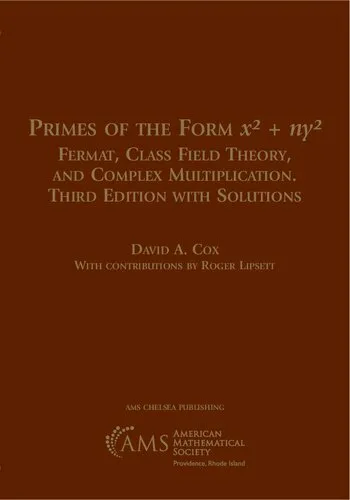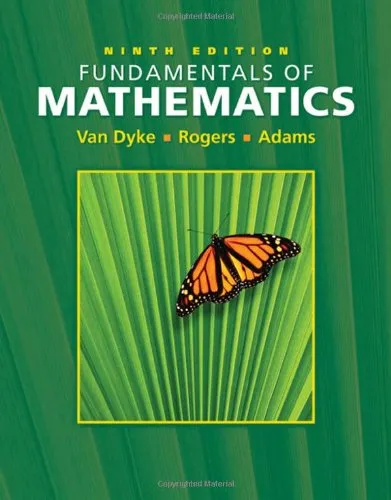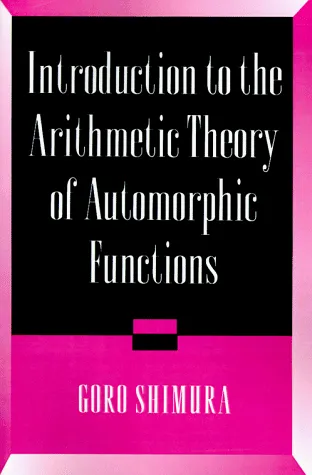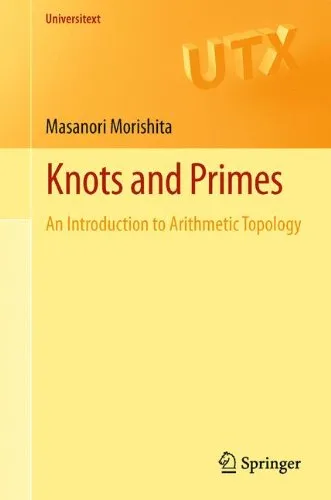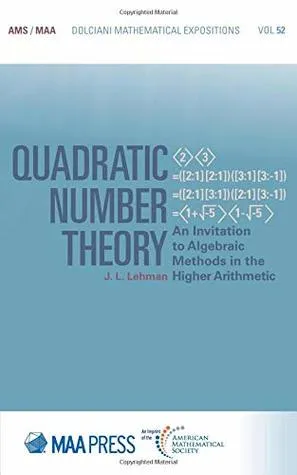Shaping of Arithmetic after C. F. Gauss's Disquisitiones Arithmeticae
4.0
Reviews from our users

You Can Ask your questions from this book's AI after Login
Each download or ask from book AI costs 2 points. To earn more free points, please visit the Points Guide Page and complete some valuable actions.Related Refrences:
Introduction
In the rich and evolving history of mathematical thought, Carl Friedrich Gauss's foundational work, Disquisitiones Arithmeticae, stands as a keystone in the development of number theory. First published in 1801, this monumental text not only established completely new directions in arithmetic but also inspired generations of mathematicians to explore, refine, and expand upon its groundbreaking ideas. The Shaping of Arithmetic after C. F. Gauss’s Disquisitiones Arithmeticae delves into this profound legacy, examining how the themes, methodologies, and innovations introduced by Gauss influenced the evolution of mathematics through the 19th and 20th centuries.
Written by Catherine Goldstein, Norbert Schappacher, and Joachim Schwermer, this book offers a deep, interdisciplinary exploration of how Gauss's work was interpreted, expanded upon, and utilized in academic communities worldwide. It bridges the gap between historical analysis and mathematical development, making it an essential read for anyone interested in the intersection of mathematical theory and cultural context. The structure of this work ensures that readers can navigate topics such as modular arithmetic, quadratic reciprocity, and the role of rigor in shaping mathematical discourse, all through the lens of history and innovation.
Detailed Summary of the Book
The book is divided into several chapters, each dedicated to exploring specific advancements in arithmetic that arose after Gauss's seminal publication. It presents comprehensive discussions of how the themes of the Disquisitiones were interpreted by contemporary and successive mathematicians, while also analyzing the social and intellectual contexts that shaped those interpretations.
Beginning with an overview of Gauss's original contributions, the authors uncover how central concepts like the law of quadratic reciprocity were elevated and extended. The book traces the development of topics such as modular arithmetic, algebraic number fields, and generalizations of primes, illuminating how mathematicians such as Ernst Eduard Kummer, Richard Dedekind, and David Hilbert carried forward Gauss’s legacy. Furthermore, it delves into how these advancements gave rise to new subfields, such as algebraic topology and modern algebra, linking them back to Gauss's original work.
A key theme of the book is the dynamic interaction between abstract mathematical ideas and the practical needs of the societies in which they developed. By investigating the institutional frameworks, letters, publications, and collaborations of the time, the authors frame the progress of post-Gaussian arithmetic in its proper historical and cultural context.
Key Takeaways
- The Disquisitiones Arithmeticae was not merely a summation of known results but a methodological shift that redefined the rigor and language of mathematics.
- Gauss’s pioneering insights into modular forms, quadratic residues, and congruences provided the foundation for virtually all modern number theory.
- The interpretation and extension of Gauss's work, particularly by figures like Dedekind and Kronecker, were not only mathematical but also shaped by their respective cultural and philosophical milieus.
- Modern computational techniques in number theory can trace their philosophical underpinnings and technical methodologies back to Gauss’s innovations.
Famous Quotes from the Book
The authors skillfully punctuate their text with insightful commentary, bringing to light the timeless wisdom of mathematicians inspired by Gauss. Here are a few impactful quotes from the book:
"Gauss required that arithmetic stand on the firm ground of reason and precision, a standard that has shaped mathematics ever since."
"The legacy of the Disquisitiones is not merely in the theorems it established but in the spirit of inquiry it fostered in the generations that followed."
"To understand the history of arithmetic is to grasp the evolution of how humanity comprehends the infinite."
Why This Book Matters
The significance of The Shaping of Arithmetic after C. F. Gauss’s Disquisitiones Arithmeticae lies in its ability to connect the past with the present. For modern mathematicians, this book provides an indispensable roadmap to understanding the origins of many foundational concepts in arithmetic. For historians and philosophers of mathematics, it offers a rich narrative that weaves together the cultural, intellectual, and technical fabrics of mathematical thought.
Beyond its academic importance, the book challenges readers to think critically about how mathematical knowledge is constructed and transmitted. It shows that great works like Gauss’s Disquisitiones are not isolated achievements but part of a continuous dialogue across centuries. As mathematics continues to evolve, reflecting new technologies and discoveries, the reflections presented in this book remain as relevant as ever.
Ultimately, this book shines a light on the timeless nature of mathematics, illustrating how ideas that originated in the 19th century continue to resonate in today’s academic and practical pursuits. It is a testament to the enduring power of human ingenuity and intellectual curiosity.
Free Direct Download
You Can Download this book after Login
Accessing books through legal platforms and public libraries not only supports the rights of authors and publishers but also contributes to the sustainability of reading culture. Before downloading, please take a moment to consider these options.
Find this book on other platforms:
WorldCat helps you find books in libraries worldwide.
See ratings, reviews, and discussions on Goodreads.
Find and buy rare or used books on AbeBooks.
1400
بازدید4.0
امتیاز0
نظر98%
رضایتReviews:
4.0
Based on 0 users review
Questions & Answers
Ask questions about this book or help others by answering
No questions yet. Be the first to ask!
